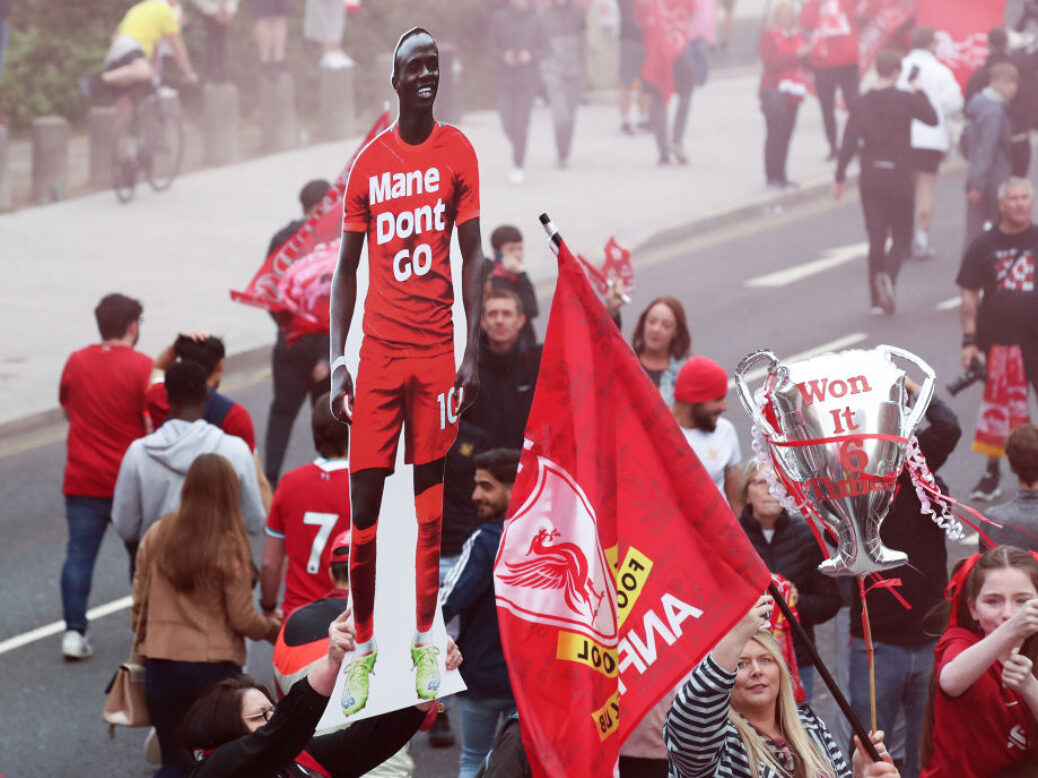
Sadio Mané was in a playful mood. Naturally, the Liverpool winger had seen the speculation surrounding his future at Anfield. Perhaps if he were a little younger, in an earlier time, he would have deflected the question, muttered something beige about staying focused on the game ahead, in this case Senegal vs Benin in an Africa Cup of Nations qualifier. Instead, he said: “I look at the social networks, like all of the young Senegalese. Sometimes I see the comments, and 60-70 per cent of Senegalese want me to leave Liverpool, right? OK, I will do what they want.” At which point he grinned the knowing and enigmatic grin of a man who knows his words will make headlines the world over.
Not so long ago, footballers rarely said very much about anything at all. Certainly not about anything quite so tacky and attention-grabbing as transfer gossip. But this is 2022, Mané is one of the hottest properties in world football, and for many contemporary stars the transfer industry is not an oblique sideshow. It’s a theatre production, one in which you are the principal protagonist. The press conference dais, the iPhone Notes app, the Instagram “like” button: all the world’s a stage, and all the players in it feverishly navigate their exits and their entrances.
[See also: Does the FA Cup need saving?]
And so to Munich, where Robert Lewandowski – arguably the world’s best striker – has signalled he intends to leave Bayern after eight trophy-laden years. Bayern would like to keep him, but if he leaves they want to replace him with Mané, who is believed to be seeking a move away from Liverpool. Barcelona would like to sign Lewandowski, but will first need to offset their monstrous debts by selling a number of star players.
Foremost among them is striker Ousmane Dembélé, who has been linked with a move to Chelsea. But that in turn may depend on whether Chelsea – under new ownership after the departure of Roman Abramovich – can find a buyer for the ailing Romelu Lukaku, signed for almost £100m last summer.
If all this is beginning to sound like the plot of a disposable US teen drama, that is because this is largely how it is being sold: a high-pitched soap opera in which players are often willing participants. Mané and Lewandowski, both still under contract, have gone public to pressure their clubs to sanction a move. Paul Pogba, now a free agent after leaving Manchester United, is rumoured to be using a forthcoming Amazon documentary to announce his next destination. And after months of speculation over a move to Real Madrid, Paris Saint-Germain’s Kylian Mbappé held a lavish media event to announce that actually, he wasn’t going anywhere at all.
Of course, big-name transfers have always created interest. But these days the content is less a by-product and more the point of the enterprise: an entire industry run on buzz and rumour and myth and wish. Indeed, such is the ubiquity of the modern transfer market that to describe it as part of football seems inadequate. Increasingly it feels like a separate thing entirely: a football spin-off series, an entertainment product complete with its own liturgy, its own internal logic, its own ensemble cast.
[See also: You might support your local team – but don’t expect the same in return]
There are journalists who will never set foot in a stadium, whose whole job – a wildly lucrative one at that – is to source and report transfer stories. And agents whose sole function is to keep their clients in constant motion; fixers, middlemen, dealmakers, whose importance to the ecosystem is both pivotal and mysterious. Millions of words and pixels are devoted to transfers that never happen, that were nothing more than the figment of an agent’s imagination. How did we get here? How did the ostensibly prosaic act of registering a footballer for a different club assume such cultural importance? When did football get so thoroughly obsessed with transfers?
Partly, of course, it is the nature of sporting passion itself: an act of dreaming. In the imagination, every club is just “a couple of good signings” away from the next level. Coaching good players to make them better is hard. Generating a distinct and coherent playing identity based around a shared sporting culture is hard. Buying footballers is easy, and so transfers – even in rumour form – offer the prospect of instant transformation, rebirth, hope.
But wherever hope exists, there will always be people around to exploit it. The optimism and aspiration of fans is piqued and teased by media organisations hungry for clicks, by clubs hungry for social engagement, by players keen to reclaim control of their own narrative. This is a drama, after all, and like all long-running dramas it needs its share of intrigue and tattle, new characters and plot-lines.
The irony is that signing star players for big money is one of the riskiest and least efficient ways of making a football team better. Examine a list of the world’s most expensive signings and it’s striking how many of them ultimately failed – Philippe Coutinho and Antoine Griezmann at Barcelona, Lukaku at Chelsea, Eden Hazard at Real Madrid. Pogba, once the world’s most expensive footballer, has slunk out of Old Trafford for free, unloved and unmourned. Gareth Bale, the previous record-holder, has just done the same at Madrid. New signings are easy; making them work is the hard part. Everybody already knows that, of course. But nobody ever got rich saying it.
[See also: Why a power struggle between players is the least of Manchester United’s problems]
This article appears in the 08 Jun 2022 issue of the New Statesman, Marked Man






